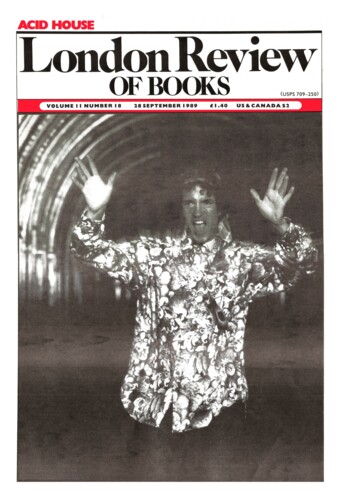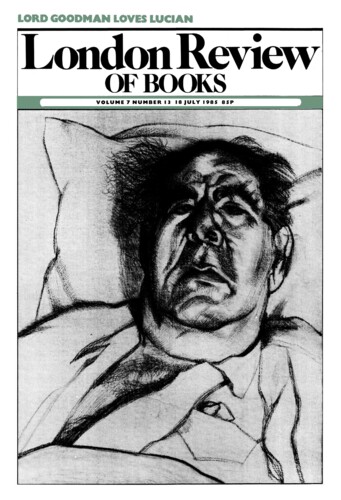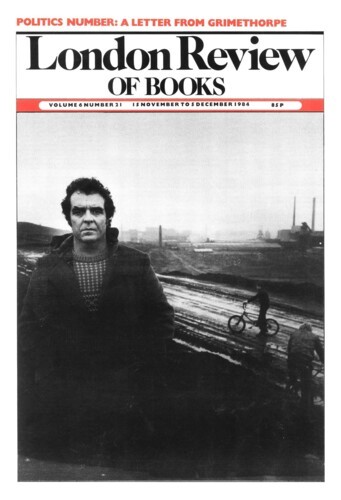All together
Humphrey Carpenter, 7 December 1989
The first meaning of ‘band’ given in the Oxford English Dictionary is ‘That with or by which a person or thing is bound’. This seems appropriate for the word’s musical connotations as well as its more literal sense. Anyone with practical experience in the jazz, rock or folk music worlds will know that bands are, first and foremost, bindings together of personalities, undertaken in the hope of producing something greater than the mere sum of the individuals. The term ‘band-leader’ is therefore really a nonsense. The mutual acceptance of musical bonds implies democracy, or, at its best, more than that – the annihilation of individuals’ will in one collective musical mind. One of the very few people to make great art out of band-leading, Duke Ellington, achieved this because the actual music the band made was as far as possible, in ensemble passages as well as solos, a fusion of individual musicians’ ideas and styles, rather than the imposition of a composer or arranger’s concepts. The other great leader on the Ellingtonian scale, Count Basie, seems to have taken a largely passive line to achieve the same fusion of musical interests – he simply left his musicians to work out riffs among themselves.’




